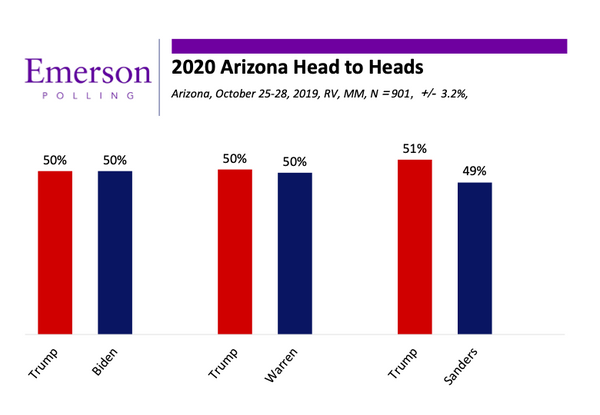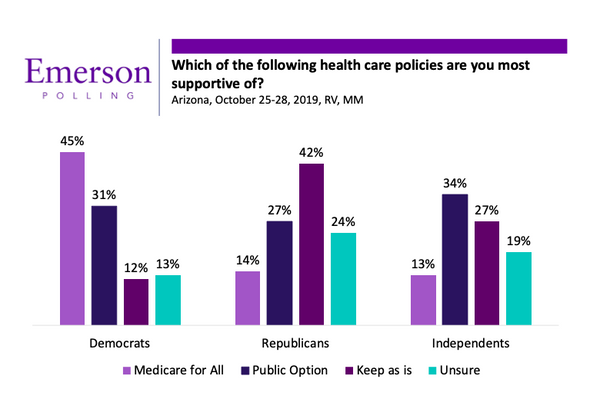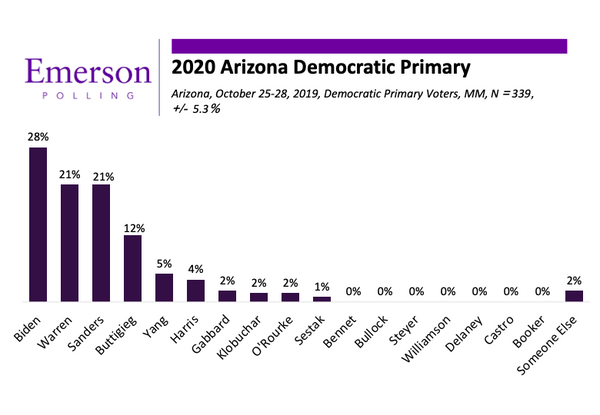A new Emerson College Poll finds President Trump's approval underwater in Arizona, at 50% disapproval and 45% approval. Despite his disapproval, a majority of voters in Arizona (50%) oppose impeaching the President, while slightly less (44%) support impeachment (n=901, +/-3.2%, MM, Oct 25-28, 2019).
In potential general election match-ups, Arizona appears to be competitive once again in 2020 with Trump tied 50%-50% against Warren and Biden, and leading Sanders 51% to 49%, well within the margin of error.
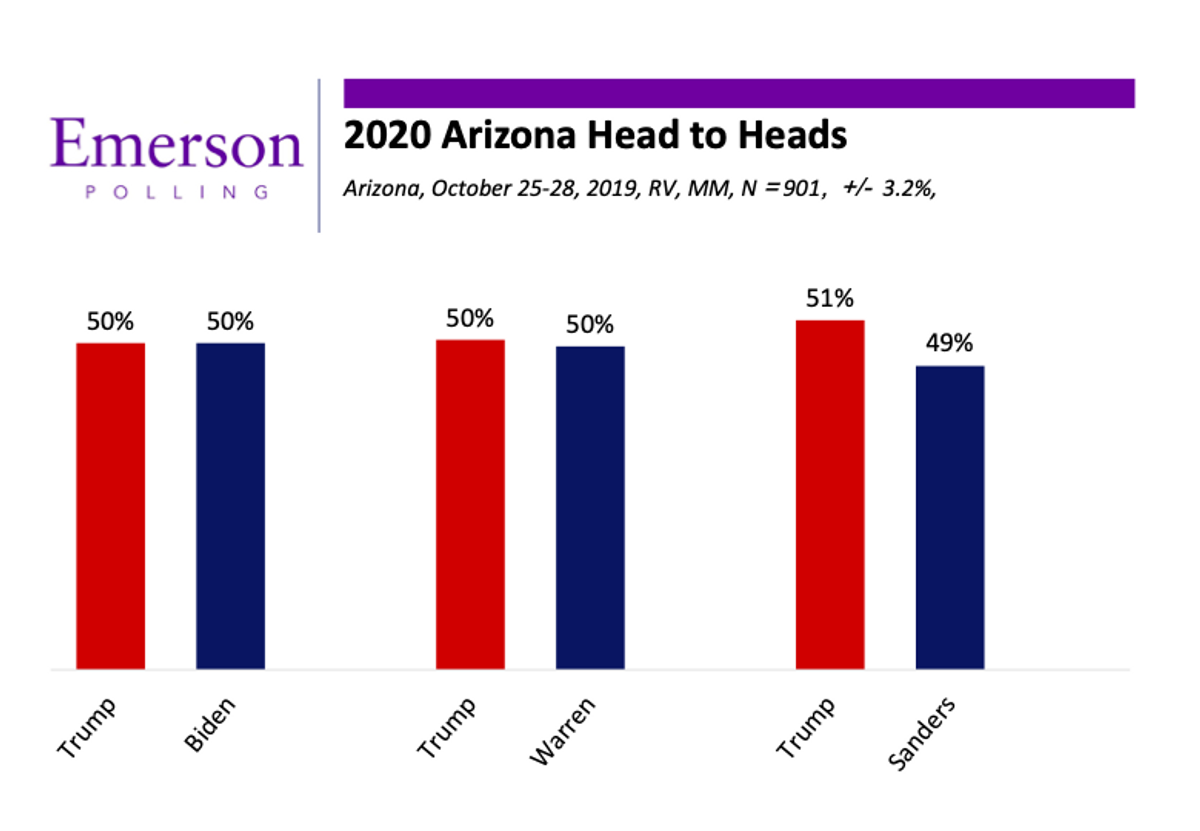
In the Arizona Senate race, the Democrats are also competitive, with Democratic challenger Mark Kelly at 46%, and incumbent appointed Republican Sen. Martha McSally at 45%. Kelly leads among Independents by a margin of 45% to 41%.
The economy is the most important issue for one in three voters in Arizona (33%), followed by healthcare (18%), immigration (13%) and social issues (11%). Impeachment came in 5th out of 9 issues (8%), just ahead of the environment (7%).
Regarding healthcare policy, 31% of Arizonans support a public option, 28% want to keep things as they are, 23% support Medicare for All, and 19% are unsure. Among Democrats, 45% support Medicare for All, compared to only 13% of Independents and 14% of Republicans. 42% of Republicans say they want to keep things as they are, compared to only 12% of Democrats and 27% of Independents in favor of the status quo. 34% of Independents prefer the public option, compared to 31% of Democrats and 27% of Republicans.
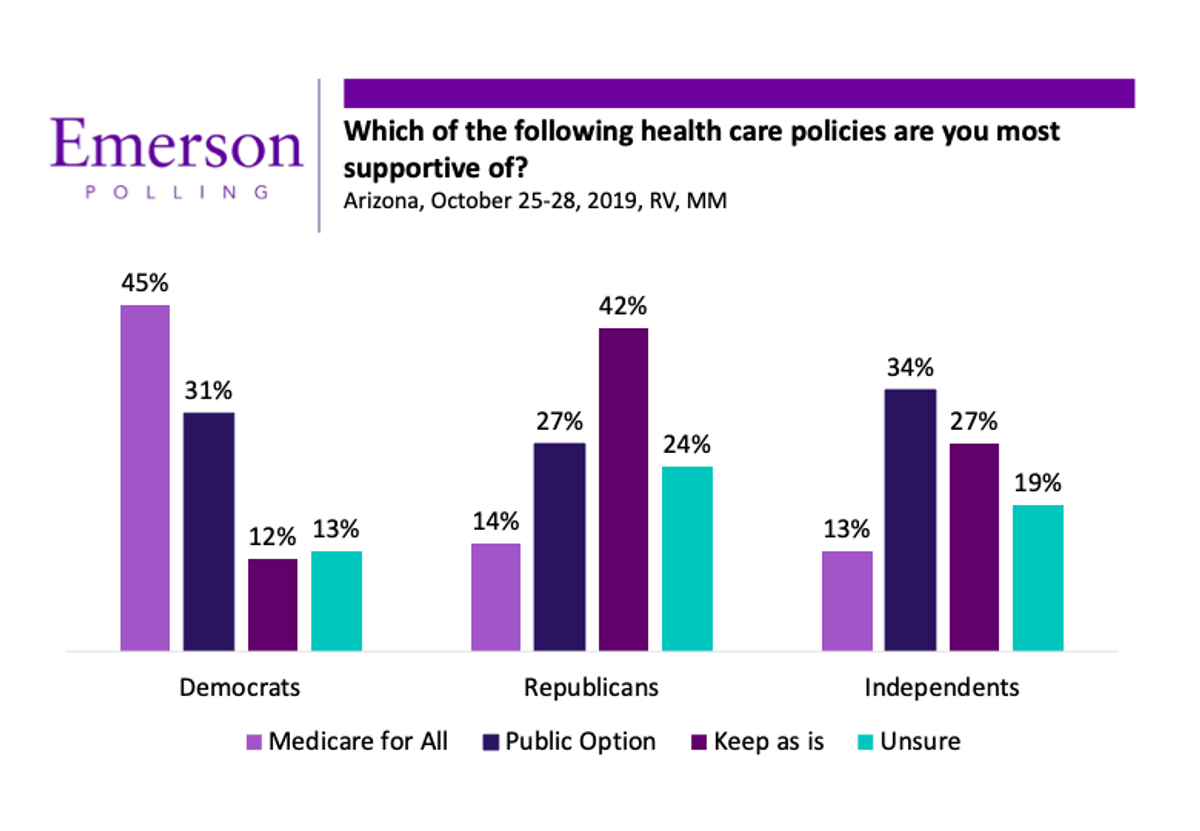
Spencer Kimball, Director of Emerson Polling, said: “Interestingly the healthcare policy at issue is President Obama's Affordable Care Act and in Arizona a plurality of Republicans want to keep the current healthcare policy as is, while Democrats overwhelmingly want to change the current policy."
In the Democratic Primary, former VP Joe Biden leads the Democratic field with 28%, Elizabeth Warren and Bernie Sanders are in a dead heat for second at 21% each. Pete Buttigieg follows at 12%, and no other candidate is above 5% (n=339, +/-5.2%).
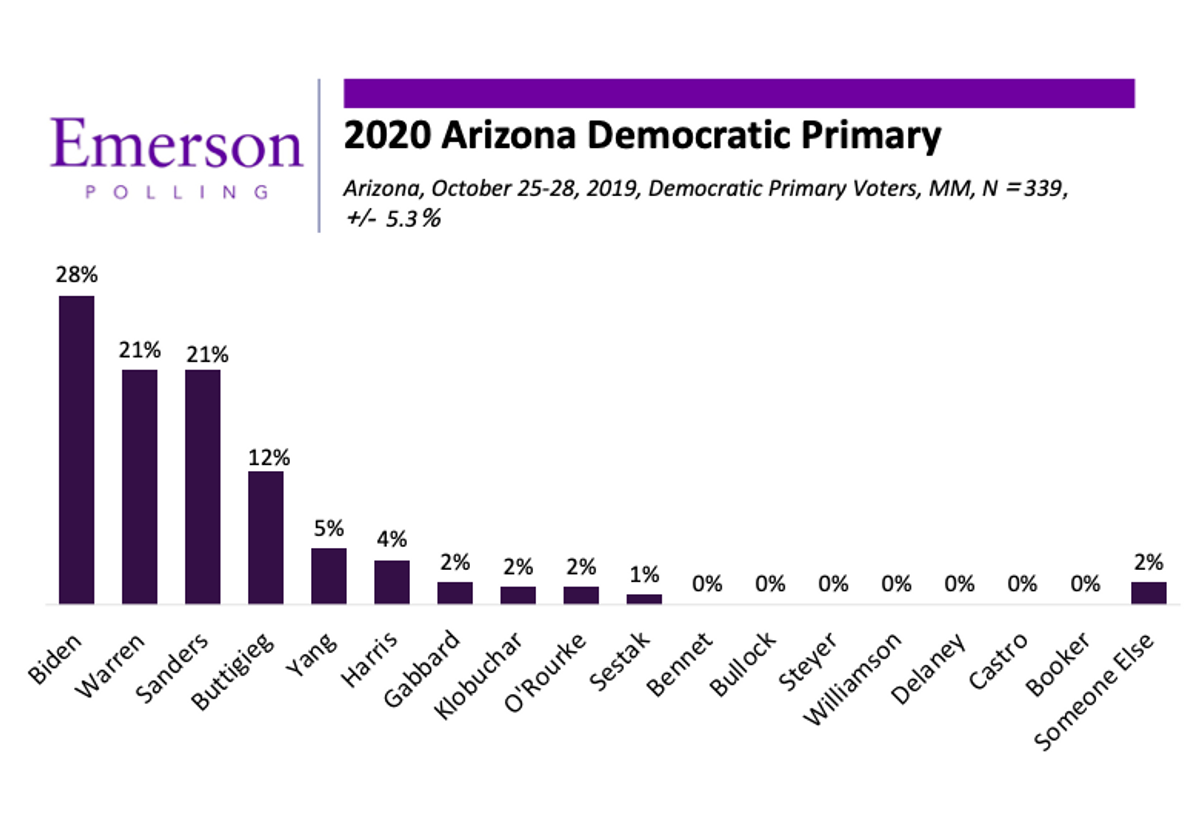
Sanders continues to do well with those under 50 with 35% support among that group, his support drops dramatically to just 7% with voters over 50. Biden continues with the reverse trend as he takes 33% of the vote from those over 50 and 21% from those under 50. Warren draws equally from each age group receiving 23% support from those under 50 and 20% support from those over 50. Andrew Yang is a favorite of the 18-29 year old crowd at 19%. Pete Buttigieg’s support is disproportionately older as he gets 21% support from those over 50 and just 3% support from under 50.
Among those who supported Hillary Clinton in the 2016 primary, Biden leads with 37%, followed by Warren with 27%, Buttigieg with 13% and Sanders with 11%. And among those who supported Sanders in 2016, 35% still support him, 21% support Biden, 18% support Warren and 9% support Buttigieg.
Looking into racial breakdowns, Warren leads among white voters with 29%, followed by Biden with 22%, Sanders with 18% and Buttigieg with 16%. Among non-white voters, Biden leads with 38%, followed by Sanders with 26%, Warren with 9% and Yang with 8%.
A majority (56%) of Arizona Democratic primary voters think a moderate Democrat has the best chance of winning in the general election, as contrasted to 26% who think a progressive Democrat, 12% a conservative Democrat, and 7% who said a Democratic Socialist would stand the best chance of beating Trump.
GOP Governor Doug Ducey has a 42% approval and 32% disapproval. His net approval is 45 points better among Democrats and 15 points better among Independents than Trump’s approval rating.
Caller ID
The Arizona Emerson College poll was conducted October 25-28, 2019 under the Supervision of Emerson Polling Director and Assistant Professor Spencer Kimball. The sample consisted of registered voters, n=901, with a Credibility Interval (CI) similar to a poll’s margin of error (MOE) of +/- 3.2 percentage points. The data was weighted by gender, age, ethnicity, region and mode based on 2016 turnout modeling. It is important to remember that subsets based on gender, age, party breakdown, ethnicity and region carry with them higher margins of error, as the sample size is reduced. Data was collected using both an Interactive Voice Response (IVR) system of landlines only (n=572) and an online panel provided by Amazon Turk (n=329).

